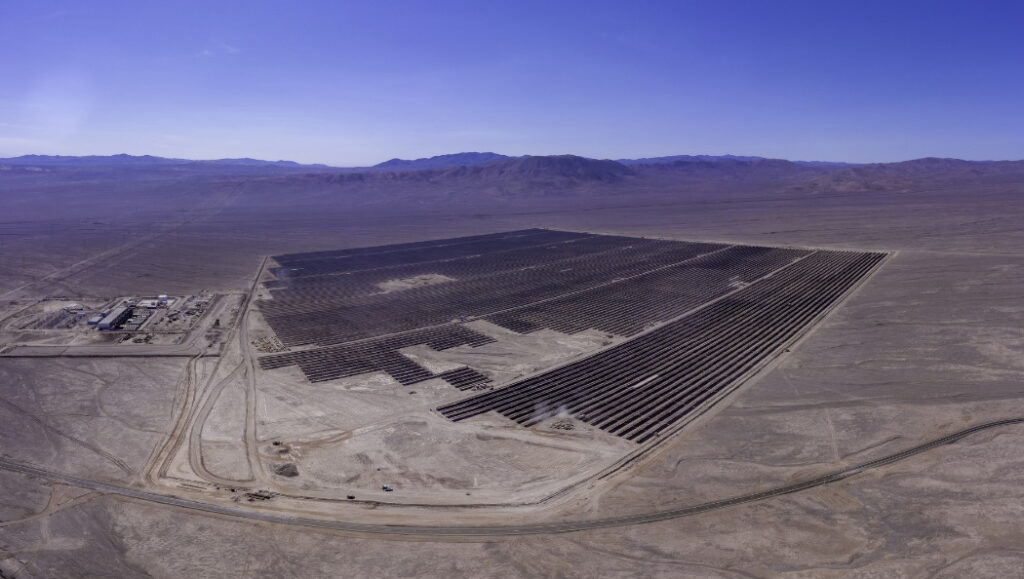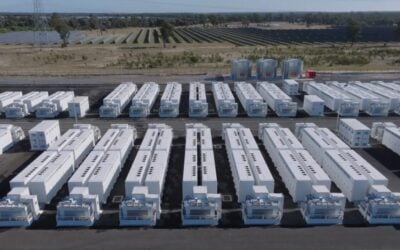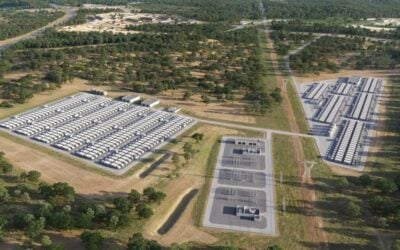
The Chilean arm of France-based multinational utility Engie has started construction on a 68MW/418MWh battery energy storage system (BESS) at an operational solar PV plant.
Located in the northern region of Antofagasta – in a former diesel power plant operated by Engie – the BESS Tamaya project will have 152 containers installed.
Enjoy 12 months of exclusive analysis
- Regular insight and analysis of the industry’s biggest developments
- In-depth interviews with the industry’s leading figures
- Annual digital subscription to the PV Tech Power journal
- Discounts on Solar Media’s portfolio of events, in-person and virtual
The lithium batteries will have a five-hour duration, will be provided by inverter and battery storage technology supplier Sungrow and be charged by the energy generated from the 114MW solar plant that reached commercial operation in February 2022.
This is not the only BESS project the company is currently developing, and expects to soon reach over 1GWh of storage capacity, thanks to BESS Coya which is expected to have a storage capacity of 638MWh.
“We believe that storage systems are a fundamental pillar of our ESG commitment, and this is why we will continue developing this technology”, said Rosaline Corinthien, CEO of ENGIE Chile.
Chile has seen it’s activity in BESS projects accelerate since the passing of a major bill late last year to facilitate energy storage activity in the country’s electricity market, all while the Chilean government is seeking multiple-gigawatts of large-scale storage in the coming years.
Last month AES Andes, a subsidiary of US utility AES Corporation, completed Latin America’s “largest” battery system project with 112MW/560MWh of capacity in Antofagasta.
Enel Green Power Chile started construction on a solar-plus-storage project with a 67MW BESS in the Metropolitan region, near the capital, Santiago, while developer Colbun commissioned the first of an 800MW pipeline late last year.
BESS units being built in Chile are set to have a discharge duration of 4-5 hours in order to capitalise on the capacity market, solar load shifting and energy trading revenues that will account for the bulk of project revenues.
Returning for the second edition in Santiago, Chile, the Energy Storage Summit Latin America will explore opportunities in countries such as Chile, Peru, Colombia, Argentina, Brazil and Mexico. Join Solar Media on October 17-18 to meet with investors, policy makers, developers, utilities, network operators, technology providers, EPCs, consultants, law firms and more to make sure you are a part of the rapidly evolving storage landscape in Latin America.






